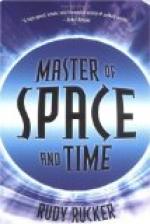Charles Wheatstone was born near Gloucester in 1802. Having completed his primary schooling, Charles was apprenticed to his uncle, who was a maker and seller of musical instruments. He showed little aptitude either in the workshop or in the store, and much preferred to continue the study of books. His father eventually took him from his uncle’s charge and allowed him to follow his bent. He translated poetry from the French at the age of fifteen, and wrote some verse of his own. He spent all the money he could secure on books. Becoming interested in a book on Volta’s experiments with electricity, he saved up his coppers until he could purchase it. It was in French, and he found the technical descriptions rather too difficult for his comprehension, so that he was forced to save again to buy a French-English dictionary. With the aid of this he mastered the volume.
Immediately his attention was turned toward the wonders of the infant science of electricity, and he eagerly endeavored to perform the experiments described. Aided by his older brother, he set to work on a battery as a source of current. Running short of funds with which to purchase copper plates, he again began to save his pennies. Then the idea occurred to him to use the pennies themselves, and his first battery was soon complete.
He continued his experiments in various fields until, at the age of nineteen, he first brought himself to public notice with his enchanted lyre. This he placed on exhibition in music-shops in London. It consisted of a small lyre suspended from the ceiling which gave forth, in turn, the sounds of various musical instruments. Really the lyre was merely a sounding-box, and the vibrations of the music were conveyed from instruments, played in the next room, to the lyre through a steel rod. The young man spent much time experimenting with the transmission of sound. Having conveyed music through the steel rod to his enchanted lyre, much to the mystification of the Londoners, he proposed to transmit sounds over a considerable distance by this method. He estimated that sound could be sent through steel rods at the rate of two hundred miles a second and suggested the use of such a rod as a telegraph between London and Edinburgh. He called his arrangement a telephone.
A scientific writer of the day, commenting in a scientific journal on the enchanted lyre which Wheatstone had devised, suggested that it might be used to render musical concerts audible at a distance. Thus an opera performed in a theater might be conveyed through rods to other buildings in the vicinity and there reproduced. This was never accomplished, and it remained for our own times to accomplish this and even greater wonders.




